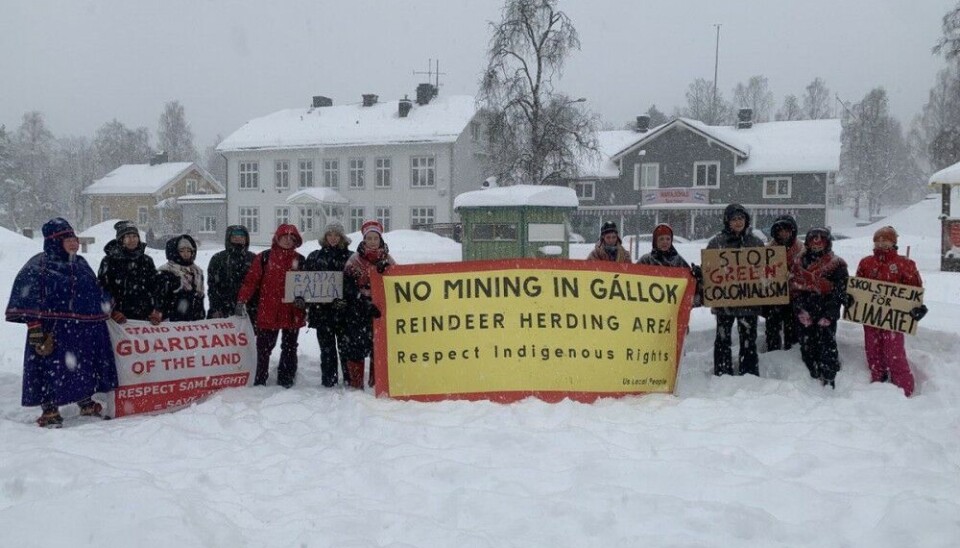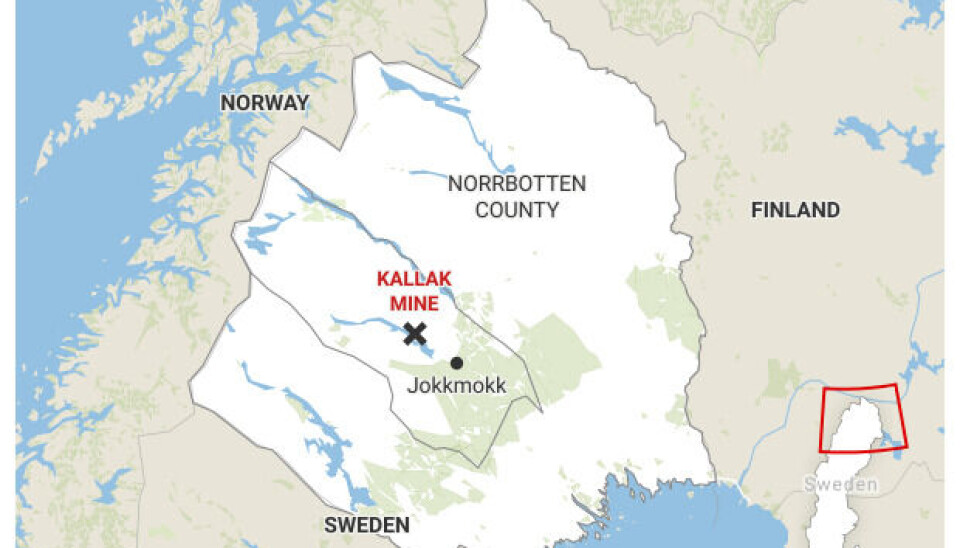
Swedish Court gives green light to controversial mining plans in Kallak
Earlier this week, the Swedish Supreme Administrative Court approved the government's decision to permit the mining plans in Jokkmokk, Sweden. Environmental organisations, Sámi and other local communities have been protesting for years.
On Tuesday, June 25, Sweden’s Supreme Administrative Court decided to uphold the previous Swedish government’s decision from 2022 to grant the exploitation concession for the a mine in Kallak, located in Jokkmokk municipality in Sweden’s northernmost county of Norrbotten.
An exploitation concession means that the company is granted exclusive rights to extraction of iron ore.
The environmental movement, Sámi reindeer herding villages and other local communities have for years tried to stop the mining plans in the area, located 40 kilometres west of Jokkmokk town.
SVT reports, that the Swedish mining company Jokkmokk Iron Mines AB, a subsidiary of British Beowulf, now can go on with the plan to apply for the environmental permit necessary to establish the controversial iron ore mine.

Requested review
Two local Sámi reindeer herding villages, Jåhkågasska och Sirges, as well as the environmental organisation The Swedish Society for Nature Conservation applied for a legal review of the government’s decision, last year in September.
They argued that the mine poses a significant risk of negative environmental impacts on extensive land and water areas. The Sámi villages argued that the government’s decision violates the constitution as well as international law. The exploitation would force them to abandon their traditional reindeer herding practices, resulting in devastating consequences for the Sámi village and the Sami culture in the area.
In the decision, the Court states that:
“In the long-term perspective, the mining activity that the application for an exploitation concession concerns involves an intrusion for a limited time in land areas used for reindeer husbandry, within a relatively smaller area, with the potential to generate significant socio-economic positive effects, which is considered good management of the area’s resources.”
Environmental permit next
However, the concession does not grant the right to commence mining operations.
For this, a permit according to the Environmental Code is also required. The final permit review will be conducted by the Land and Environment Court.
Jokkmokk Iron Mines AB has previously stated that they hope the environmental permit for the mine will be approved by mid-2025.
A spokesperson from the Sirges village says the issue is far from settled.

Sámi hub and UNESCO site
Jokkmokk municipality, which borders Norway to the west, encompasses Sámi herding villages and Europe’s last unexploited wilderness, the Sarek National Park, known for its diverse species and unique landscapes. Sarek is part of the Laponian area, a UNESCO World Heritage Site.
Jokkmokk village serves as a political and cultural hub for Sámi culture. Since the 17th century the Jokkmokk Sámi winter market has been organised there.
Also the UN agency UNESCO has warned that Laponia’s status as a World Heritage Site could be threatened by a mine.
Timeline in short
The iron deposit outside Jokkmokk was discovered already in the 1940s.
In 2006, Jokkmokk Iron Mines AB, subsidiary of Beowulf, was granted an exploration permit and test drillings were carried out in 2010.
In connection with mining exploration in 2013, extensive protests broke out.
That same year, Beowulf submitted an application for an exploitation concession to the Swedish Mining Inspectorate. They wanted to approve it, but after many turns, the matter ended up with the government in 2017. This happened after the County Administrative Board of Norrbotten said no.
In March 2022, the government granted the exploitation concession, allowing the company to further investigate the mining plans.
In September 2023, hearings were held in the Supreme Administrative Court regarding the government’s decision.













